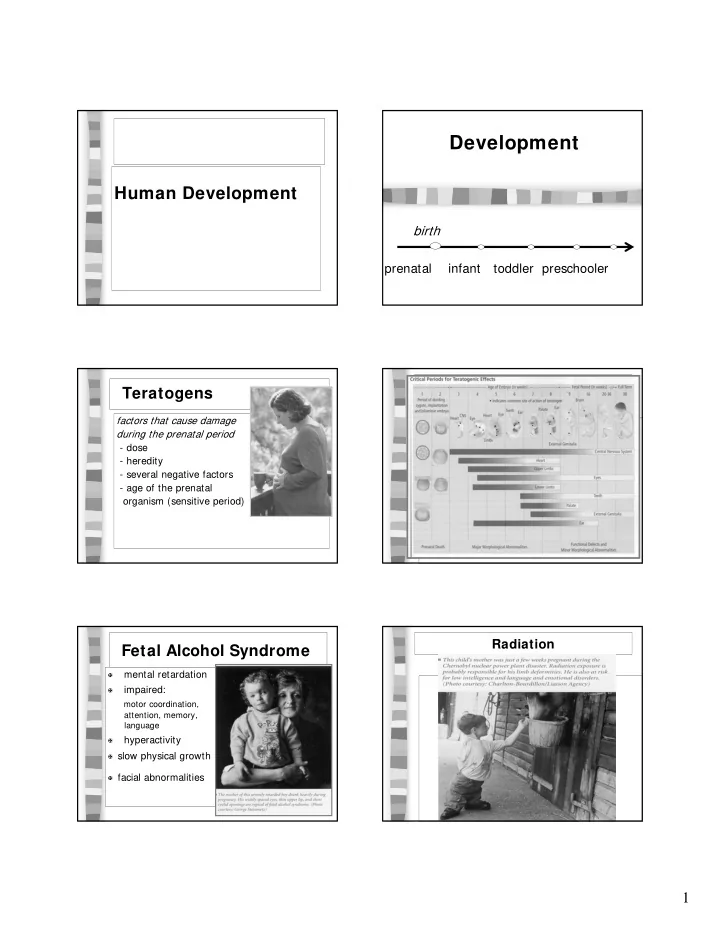

Development Human Development birth prenatal infant toddler preschooler Teratogens factors that cause damage during the prenatal period - dose - heredity - several negative factors - age of the prenatal organism (sensitive period) Radiation Fetal Alcohol Syndrome mental retardation � impaired: � motor coordination, attention, memory, language hyperactivity � � slow physical growth � facial abnormalities 1
Infants: Cognitive Development At birth 3 months 15 months Neurons Cognitive Development : Piaget Cognitive Development � Schemas: mental models � Assimilation: interpret new experiences using old schemas Accommodation: � fitting old schemas to new experiences Social Development (E. Erikson) 2
Social Development Ainsworth: “strange situation” Attachment: patterns of behavior that infants develop in response to their experiences with caregivers Ainsworth: “strange situation” Types of Attachment Types of Attachment 2. Anxious-Resistant 1. Secure - infant: - infant: - caregiver: sensitive, responsive, - caregiver: insensitive predictable to baby’s cues, some rejection, lower on affect, not consistent - later in life: - later in life: Types of Attachment 3. Anxious-Avoidant - infant: - caregiver: more insensitive, less responsive, often angry, very low on affect - later in life: 4. Disorganized 3
Toddlers: Development ♦ language � ♦ symbolic play � ♦ self-awareness � ♦ gender identity � ♦ self-evaluation � ♦ self-control � ♦ emergence of moral self � conservation Cognitive Development Preoperational stage (Piaget) lack understanding of “conservation” Cognitive Development: Piaget Preoperational stage Egocentrism: inability to perceive things/events from another’s point of view 4
Cognitive development Piaget: concrete operational stage think logically about concrete � Adolescents events (conservation) 11-14 early � less egocentric can verbally � 15-18 middle hide feelings 18-21 late Mood Swings Mood Swings � Sleep depravation � Hormonal changes Developing brain (frontal cortex) � � Social support: still seek parental guidance Adolescent egocentrism I dentity Achievement (Erikson) unique/independent identity: - social � Imaginary audience - ethnic - sexual � Personal fable - occupational 5
Moratorium: I dentity Foreclosure: dedication to self-discovery didn’t go through identity crisis Negative I dentity: I dentity Diffusion: select identity that is tried several identities - not able to settle on one undesirable in the eyes of others 6
Recommend
More recommend